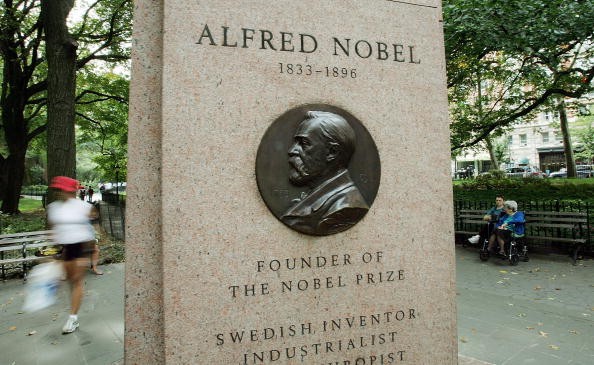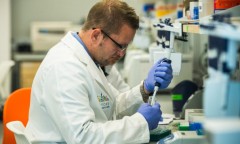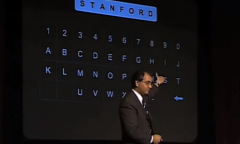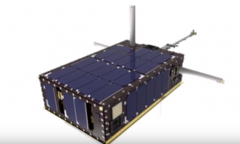By Iesha Javed, | October 10, 2016

A monument dedicated to Nobel Prize founder Alfred Nobel stands in New York City. Three scientists have won the 2016 Nobel Prize in Chemistry for creating nano machines.
The 2016 Nobel Prize in Chemistry has been awarded to three scientists for their work in developing the world's first molecular machines that are a few nanometers long. The machines are too tiny to be seen with the naked eye.
Like Us on Facebook
Jean-Pierre Sauvage, James Fraser Stoddart, and Bernard Feringa made the machines, which are thousand times as minute as the width of a human hair.
These devices may one day prove handy in enabling scientists to produce artificial switches to deliver targeted drugs and operate microscopic sensors. It could be used to produce new energy storage mechanisms. Similar molecular machines are present in our bodies that power our organs and enable our bodies to function.
"These three laureates have opened this entire field of molecular machinery and shown us that you can make machine-like function at the molecular level," said Olof Ramström, a member of the Nobel chemistry committee.
He compared Sauvage, Stoddart and Feringa's findings to the invention of the first crude electric motors. "Scientists in the early 19th century could not envision the countless ways that their spinning cranks and wheels would be put to use. But they had already created a revolution," he said.
The Nobel committee credited Sauvage, a professor at the University of Strasbourg, with the first significant progress in 1983.
Molecules are typically bound together by covalent linkages, with their atoms sharing electron pairs. But Sauvage's trio figured out how to connect two molecules that are not fixed rigidly together in a mechanical chain using copper ion.
-
Use of Coronavirus Pandemic Drones Raises Privacy Concerns: Drones Spread Fear, Local Officials Say

-
Coronavirus Hampers The Delivery Of Lockheed Martin F-35 Stealth Fighters For 2020

-
Instagram Speeds Up Plans to Add Account Memorialization Feature Due to COVID-19 Deaths

-
NASA: Perseverance Plans to Bring 'Mars Rock' to Earth in 2031

-
600 Dead And 3,000 In The Hospital as Iranians Believed Drinking High-Concentrations of Alcohol Can Cure The Coronavirus

-
600 Dead And 3,000 In The Hospital as Iranians Believed Drinking High-Concentrations of Alcohol Can Cure The Coronavirus

-
COVID-19: Doctors, Nurses Use Virtual Reality to Learn New Skills in Treating Coronavirus Patients












